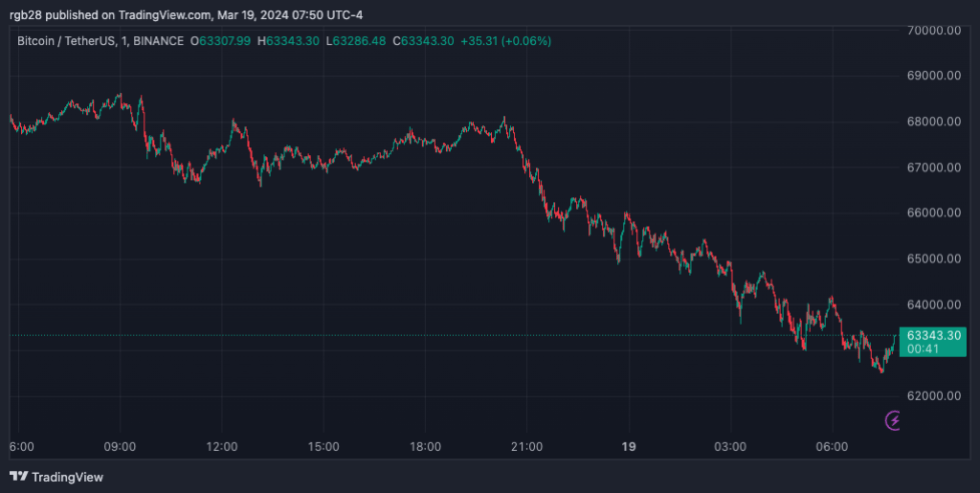The massive interest in Bitcoin ETFs (Exchange-Traded Funds) has created a war between issuers to attract clients to their products. The financial giants have taken different approaches to captivate the public, and lowering the fees has been a crucial component of these strategies.
Grayscale Unfazed By Bitcoin ETF Fee War
In an interview with CNBC, Michael Sonnenshein talked about the Bitcoin ETF fee war and the future of Grayscale Bitcoin Trust (GBTC) as the ETF market continues to expand.
During the approval and subsequent launch process of the spot Bitcoin ETFs, most issuers tried to captivate the public’s interest with very low management fees. The battle continued as issuers extensively promoted their ETFs on different platforms to attract retail investors.
The asset managers have used Google ad campaigns, mainstream media advertisements, and a strong social media presence to compete against each other.
Grayscale CEO says fees on its bitcoin ETF will drop over time after outflows hit $12 billion https://t.co/lQnoMlC9YQ
— CNBC (@CNBC) March 19, 2024
However, the fee war remains the main incentive to attract new clients. The battle heated up after asset manager VanEck announced its fee waiver. The zero-fee approach until March 2025 is the firm’s latest strategy after falling behind its competitors.
The GBTC 1.5% management fee, defended by the CEO before, remains the highest among the competition. Nonetheless, in the CNBC interview, Sonnenshein announced that GBTC will reduce its fees in the future:
I’ll happily confirm that, over time, as this market matures, the fees on GBTC will come down.
The CEO further explained that during the early stages of a product’s lifecycle, the maintenance fees tend to be higher, but “as those markets mature, and as those funds grow, those fees tend to come down, and we expect the same to be true of GBTC.”
Despite not participating in the current fee war, Grayscale recently filed for a new investment product called “Grayscale Bitcoin Mini Trust.” This product would transfer some of the fund’s BTC to the Mini Trust.
Presumably, it would cost much less than GBTC while operating independently. Sonnenshein told CNBC that “all of these new issuers came into the market to compete with us” while simultaneously competing with each other.
GBTC’s Game Just Begun Despite $12 Billion In Outflows
Grayscale’s win against the Securities and Exchange Commission (SEC) paved the way for the spot Bitcoin ETF approval in the US. However, despite managing the $26 billion GBTC, the digital asset manager has seen over $12 billion in capital outflows since the trust converted into an ETF in mid-January.
Net outflow of $154m on 18 March for the Bitcoin ETFs, driven by record $643m GBTC outflow https://t.co/ozlr7Ql9jH pic.twitter.com/r1Riwxjspo
— Farside Investors (@FarsideUK) March 19, 2024
Sonnenshein said during the interview that the firm anticipated having outflows. Although its high fees account for a considerable percentage of the liquidations, the CEO listed some of the reasons he considers would explain the massive numbers:
Investors have been wanting to either take gains on their portfolio, or arbitragers coming out of the fund, or people unwinding positions that were part of bankruptcies through forced liquidation.
The massive liquidations didn’t come as a surprise. Nonetheless, the CEO believes that substantial outflows have sustained GBTC’s performance, as he believes the game is just beginning.
We’re kind of at the end of that first inning now, where the pent-up demand for buying has hopefully been satisfied, the pent up demand for selling has also hopefully been satisfied.
Optimistic about the future of GBTC, the CEO believes that they are moving towards “that second and third inning” and that there’s still a lot of market to explore as many possible investors are yet to access these investment products.








